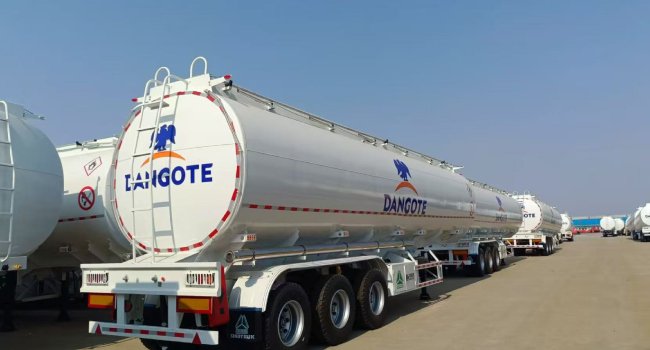Nigeria Issues Upstream Executive Order, Prioritizing High Returns For Oil & Gas Operators

Nigeria’s President, Bola Ahmed Tinubu, has signed an executive order designed to lower costs and enhance revenue from oil and gas projects. The Upstream Petroleum Operations Cost Efficiency Incentives Order (2025) introduces performance-based tax incentives for upstream operators and is expected to play an instrumental role in attracting investment, driving development and unlocking greater value from the country’s oil and gas resources.
As the voice of the African energy sector, the African Energy Chamber (AEC) commends the Nigerian government’s continued commitment to not only improving the operating climate for oil and gas firms, but strengthening the competitiveness of doing business in Nigeria. The Upstream Petroleum Operations Cost Efficiency Incentives Order (2025) is an intentional strategy to transform the country, and with this reform, Nigeria is well-positioned to attract fresh investment across its upstream oil and gas sector – reaffirming the country’s position as one of Africa’s top producers.
The Upstream Petroleum Operations Cost Efficiency Incentives Order (2025) will feature incentives for operators who deliver verifiable cost savings that meet defined industry benchmarks. The country’s upstream regulator the Nigerian Upstream Petroleum Regulatory Commission will publish the requisite benchmarks on an annual basis and according to asset type. Benchmarks will cover a variety of assets including onshore, shallow-water and deep-water. In addition, the executive order will cap available tax credits at 20% of a company’s annual tax liability, thereby protecting the government’s revenues as well as fiscal competitiveness. Nigeria’s Special Advisor to President Tinubu on Energy Olu Verheijen will spearhead inter-agency coordination, ensuring operators maximize the opportunities presented through the executive order.
The executive order could not come at a better time for Nigeria. Targeting two million barrels per day (bpd) in oil production and 12 billion standard cubic feet per day (bscf/d) in gas production – up from the current 7.3 bscf/d – Nigeria requires significant levels of investment in both active fields and exploration blocks. While the country has long-faced investment decline owing to a variety of factors – including regulatory uncertainty and shifts in global spending – recent reforms promise to turn this trend around. The Upstream Petroleum Operations Cost Efficiency Incentives Order (2025) follows the implementation of the Petroleum Industry Act (PIA) in 2021, which sought to address industry challenges by providing a comprehensive framework for the country’s oil and gas landscape. With both policies, Nigeria is expected to accelerate investment in exploration and production.
The impact of the PIA has already been felt across the country, with energy companies – from majors to independents to the national oil company (NOC – making sizable investments. Renaissance Africa Energy – a consortium of independents – is planning $15 billion in spending across 32 oil and projects; ExxonMobil is investing $1.5 billion to revitalize the Usan deepwater oilfield at OML 138; while TotalEnergies and the Nigerian National Petroleum Company is investing $550 million in a non-association gas project. ExxonMobil’s Usan field plans to make a final investment decision Q3, 2025. In 2024, the country secured $6.7 billion in investments, with $5.5 billion of this directed towards oil and gas asset acquisitions. Looking ahead, both the PIA (2021) and Upstream Petroleum Operations Cost Efficiency Incentives Order (2025) are expected to entice greater spending across the market, providing operators with strong fiscals that prioritize high returns. By 2029, Nigeria seeks to unlock $30 billion in oil and $5 billion in gas investments, and the policies are anticipated to serve as a driving force behind this goal.
“This recent executive order is a testament to Nigeria’s commitment to strengthening its regulatory landscape, improving fiscals and supporting revenue generation across the oil and gas industry. The order is expected to play a significant role in attracting new investment into the country at a time when national production goals require greater capital and technology injection. The Upstream Petroleum Operations Cost Efficiency Incentives Order (2025) positions the country as a globally competitive hydrocarbon market,” states NJ Ayuk, Executive Chairman of the AEC.


















